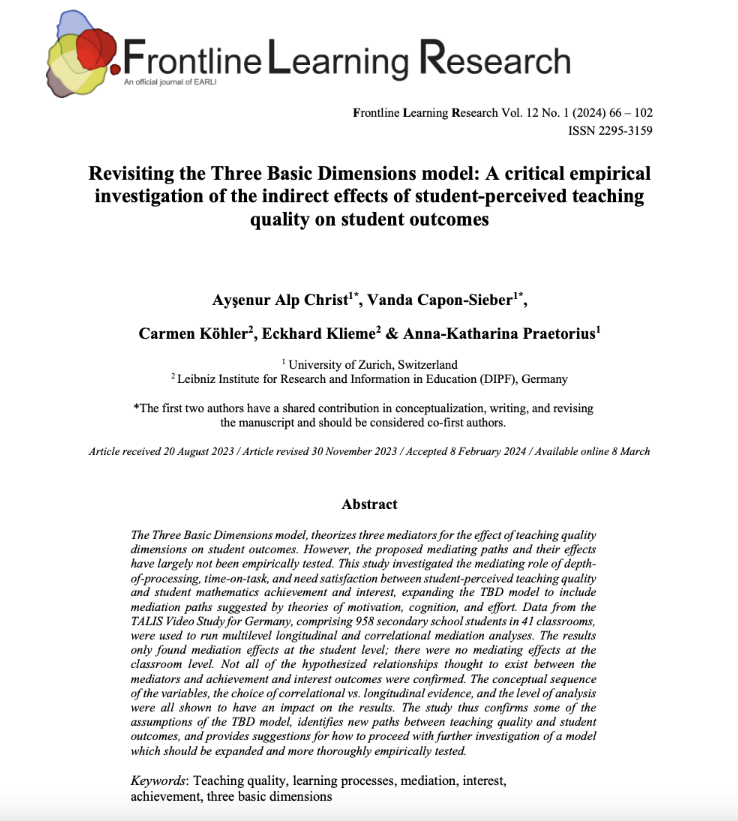Frontline Learning Research

The Three Basic Dimensions (TBD) model, the leading model of teaching quality in German-speaking countries, theorizes three mediation paths for the effect of teaching quality on student outcomes. However, the existence of these paths and their effects have largely not been empirically tested. This study investigated the mediating role of depth-of-processing, time-on-task, and need satisfaction between student-rated teaching quality and students’ mathematics achievement and interest, expanding the TBD model to include mediation paths suggested by theories of motivation, cognition, and effort. Data from the TALIS Video Study Germany, comprising 958 secondary school students in 41 classrooms, were used to run multilevel longitudinal and correlational mediation analyses. The results found mediation effects only at the student level; there were no mediating effects at the classroom level. Not all of the hypothetical relationships thought to exist between the mediators and achievement and interest outcomes were confirmed. Specifically, at the student level, we found that time-on-task predicted student interest and depth of processing predicted student achievement, but none of the other hypothesized relationships were observed. The conceptual sequence of the variables, the choice of correlational vs. longitudinal evidence, and the level of analysis were all shown to have an impact on the results. The study thus confirms some of the assumptions of the TBD model, identifies new paths between teaching quality and student outcomes, and provides suggestions for how to proceed with the further investigation of a model which should be expanded and empirically tested.
